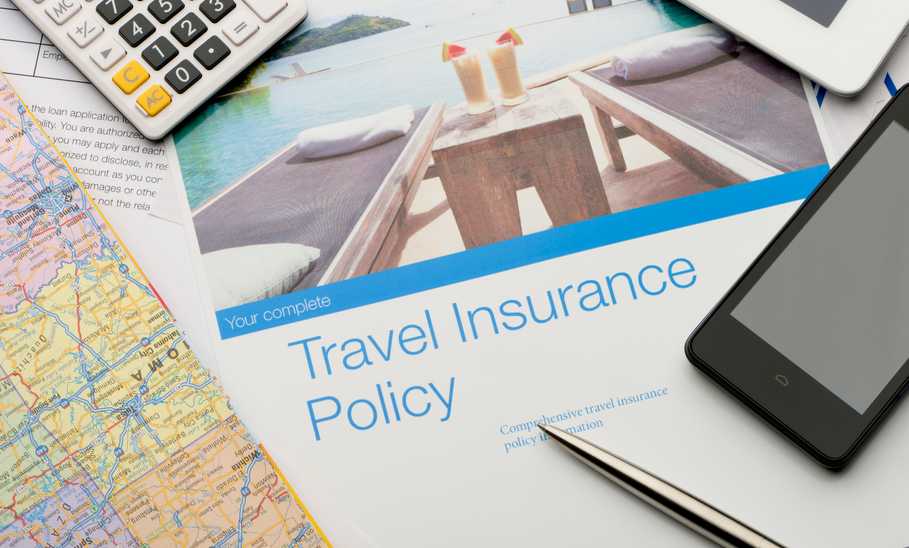
Understanding Travel Insurance – Travel is a thrilling experience, offering the chance to explore new cultures, savor unique cuisines, and visit unforgettable destinations. However, as much as planning a vacation is exciting, unforeseen circumstances can quickly turn a dream trip into a nightmare. This is where travel insurance comes into play. Understanding travel insurance—what it covers and why it matters—ensures that travelers can navigate the unpredictable nature of journeys with confidence and peace of mind.
1. Understanding Travel Insurance: What is Travel Insurance?
At its core, travel insurance is a type of coverage designed to protect you financially in the event of unexpected situations while traveling. It acts as a safety net, helping you recover the costs associated with canceled trips, medical emergencies, lost luggage, or travel delays. Essentially, travel insurance ensures that you won’t bear the full financial burden of unforeseen circumstances that could otherwise disrupt your travel plans.
While travel insurance policies vary widely, they typically offer a range of coverage options tailored to meet the specific needs of different travelers. From basic policies to comprehensive plans, understanding the various components of travel insurance can make a significant difference in your overall travel experience.
2. Key Components of Understanding Travel Insurance

Trip Cancellation and Interruption
One of the most valuable aspects of travel insurance is the coverage it provides for trip cancellations and interruptions. Life is unpredictable, and sometimes circumstances beyond your control—such as illness, family emergencies, or natural disasters—can force you to cancel or cut short your trip. Without travel insurance, the financial losses from non-refundable flight tickets, hotel reservations, and prepaid tours can be substantial.
With trip cancellation coverage, you can recover some or all of these expenses, depending on your policy. In the case of trip interruption, travel insurance may help cover additional costs for returning home early, such as change fees for flights or extra accommodation expenses.
Medical Emergencies

Traveling abroad often means relying on unfamiliar healthcare systems, which can sometimes be expensive, especially in countries like the United States or Switzerland. In such cases, travel insurance is essential, providing coverage for medical emergencies during your trip. This coverage typically includes hospital stays, doctor visits, and in some cases, emergency dental care.
For travelers engaging in adventure activities, such as hiking, skiing, or scuba diving, specialized policies offer coverage for accidents related to these activities. Without this coverage, medical bills could quickly become overwhelming, turning an otherwise enjoyable trip into a financial strain.
Emergency Evacuation

In certain travel scenarios, medical treatment might not be readily available, especially in remote or underdeveloped regions. If an emergency medical situation arises, travel insurance can cover the cost of evacuation to a suitable medical facility. Whether you’re in a remote jungle or an isolated mountain range, emergency evacuation coverage ensures you’re not left stranded in a dangerous or inaccessible location.
This protection extends to repatriation, which covers the cost of returning you to your home country in the event of severe illness or injury, ensuring that you’re safely transported back without the additional burden of expenses.
Lost or Delayed Baggage
Lost luggage is a common travel inconvenience that can lead to frustration, especially when crucial items like passports, medications, or expensive electronics go missing. Many travel insurance policies include coverage for lost, stolen, or delayed baggage. This means that in the unfortunate event that your luggage goes missing, you can receive reimbursement for essential items, such as clothing and toiletries, while you wait for your bags to be located.
Additionally, some policies also cover the theft of personal belongings like electronics or jewelry. While these reimbursements may not cover the full replacement cost, they can help ease the financial burden during an already stressful situation.
Travel Delays
Delays are an inevitable part of modern travel, whether caused by weather conditions, mechanical issues, or other factors. Travel insurance offers coverage for travel delays, ensuring that you’re not left out of pocket for expenses incurred while waiting for your delayed flight or train. This coverage often includes compensation for meals, accommodation, and transportation costs, helping you manage the inconvenience with minimal stress.
In more extreme cases, if a delay causes you to miss an important event or connection, some policies may even offer compensation for lost activities or missed business opportunities, providing comprehensive protection against delays.
3. Additional Coverage Options
While the above categories cover the most common situations travelers encounter, travel insurance can be tailored to suit a variety of specific needs. Here are some additional coverage options to consider:
Understanding Travel Insurance for Rental Car Coverage
When renting a vehicle abroad, the risks associated with accidents, damage, or theft can be substantial. Travel insurance often includes coverage for rental cars, protecting you against any financial losses due to damage or theft. This coverage typically complements the insurance offered by the rental car company, allowing for more robust protection during your trip.
Flight Accident Coverage
While accidents during air travel are rare, they are a possibility that can have catastrophic consequences. Travel insurance policies often include coverage for flight accidents, which provides compensation to you or your beneficiaries in the event of serious injury or death during a flight. This coverage offers an added layer of protection, particularly for those who want to ensure their family’s well-being in the unlikely event of an accident.
Cancel for Any Reason (CFAR)
For travelers who want additional flexibility, Cancel for Any Reason (CFAR) coverage provides the option to cancel a trip for any reason not otherwise covered by the policy. This option allows you to cancel your trip even if you simply change your mind or encounter a scheduling conflict. While CFAR coverage typically comes with a higher premium, it offers the ultimate level of flexibility for travelers who prioritize convenience.
4. Why Understanding Travel Insurance is Matters?
While it’s tempting to skip purchasing travel insurance to save on costs, doing so can lead to significant financial and emotional stress in the event of a mishap. Travel insurance provides crucial protection against the unexpected, offering peace of mind that you’re covered in the face of uncertainty.
Whether you’re a frequent flyer or embarking on a one-time vacation, travel insurance acts as an investment in your overall travel experience. By securing travel insurance, you’re not only protecting your financial interests but also ensuring that you can travel with confidence, knowing that assistance is available when needed.
Moreover, with the increasing complexity of travel—due to factors like fluctuating prices, unpredictable weather, and evolving health risks—having the right coverage is no longer a luxury but a necessity for modern-day travelers.
5. Final Thoughts
Travel insurance is much more than just an additional cost; it is a critical element of modern travel, offering vital protection against unforeseen events that could derail your trip. From trip cancellations to medical emergencies, travel insurance provides a comprehensive safety net that allows you to explore the world with confidence.
Before you embark on your next adventure, take the time to carefully review different travel insurance options, ensuring that the policy you choose aligns with your needs and destination. By Understanding Travel Insurance and investing in travel insurance, you’re ensuring that no matter what happens, your travel experience remains as stress-free and enjoyable as possible.









